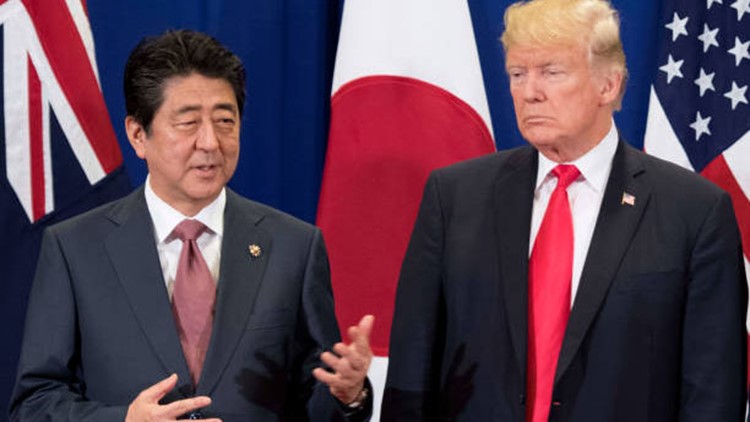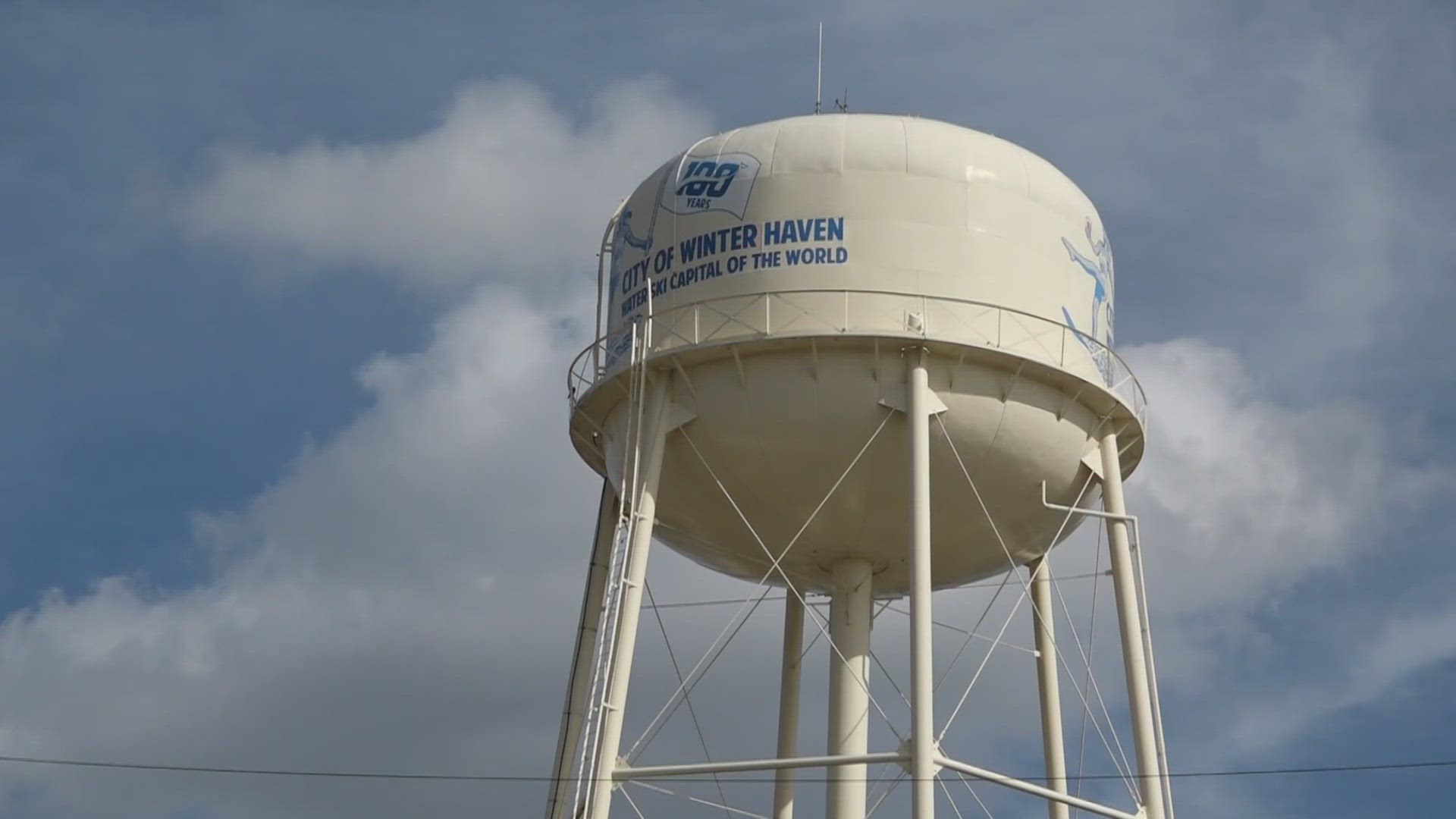Japanese Prime Minister Shinzo Abe headed Tuesday to President Donald Trump's Mar-a-Lago resort for two days of talks, hoping to keep Japan's interests on the table in a planned U.S.-North Korea summit as well as stem a slide in his voter support ratings.
Unlike at their two previous summits, when the two leaders showcased their close personal relationship, Abe arrives in the political hot seat this time. Experts say the outcome could boost or further undermine his leadership at home. Another golf outing, as at their Mar-a-Lago and Tokyo meetings in 2017, is being planned, a Japanese official said.
During the talks, Abe will want to make sure Trump doesn't cut a deal with North Korea that leaves Japan exposed to shorter-range missiles that do not necessarily threaten the U.S. He also is expected to ask the U.S. leader to raise with North Korean leader Kim Jong Un the issue of Japanese abducted by North Korea in the 1970s and 1980s.
Abe has to rely on Trump to represent Japan's interests, as the prospects of an Abe-Kim meeting remain uncertain. Kim has already met Chinese President Xi Jinping and is holding talks with South Korean President Moon Jae-in next week before an expected meeting with Trump in late May or June.
Yu Uchiyama, a political science professor at the University of Tokyo, said Abe will try to make sure the two leaders are on the same page on North Korea.
"Mr. Abe wants to confirm their cooperation and eliminate the image that Japan is left out of the loop," he said. "He is also seeking to achieve a diplomatic result in hopes of turning around his public support."
But Trump is unpredictable, Uchiyama said, and an unfavorable result could further damage Abe's weakening leadership position.
Abe also faces challenges on trade. He will likely seek to get Trump to reverse his decision not to exclude Japan from new steel and aluminum tariffs, while resisting the U.S. leader's attempts to pull Japan into bilateral trade negotiations.
Japanese officials said Abe and Trump might also discuss the Trans-Pacific Partnership, after Trump indicated last week that the U.S. might be interested in rejoining what is now an 11-country trade agreement. Trump pulled the U.S. out of TPP shortly after his inauguration in early 2017.



